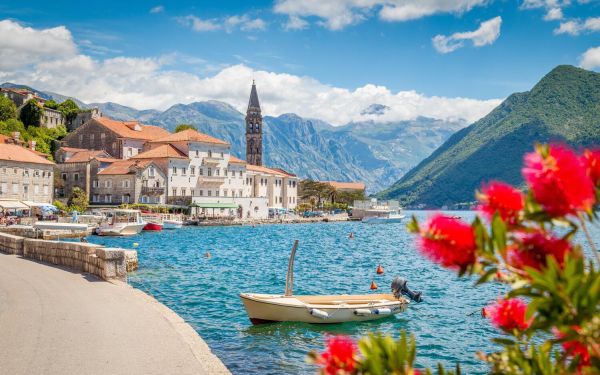RIA Real Estate: For whom the bell tolls: the number of deceived co-investors in Russia may start to rise in the autumn.
MOSCOW, June 11 - RIA News, Yevgenia Petrova. The economic crisis in Russia, which began in 2008, has led to the emergence of unfinished construction projects and deceived investors - even now, almost seven years later, their number reaches 90 thousand people. According to experts surveyed by RIA News, the real estate market is feeling more comfortable in the current crisis, but even so, the number of deceived investors may significantly increase as early as this autumn.
What the crisis holds for us
"I wouldn't be ringing any alarm bells yet, but I would definitely be ringing the warning bell," says Alexander Khinshtein, a member of the State Duma, when speaking of the possibility of a new wave of deceived co-investors by developers.
Vice President of the Anti-Collectors Association of Russia, Andrey Vlass, expresses a more categorical opinion, suggesting that the situation with deceived investors may worsen as early as autumn 2015. He links the threat to the fact that the purchasing power of the population may decrease - currently, companies are cutting salaries and continuing to reduce staff.
According to Vlass, this will lead to a decrease in sales for developers. "Problems with financing will negatively affect the fate of projects, if not lead to the suspension of construction," he notes.
In addition, deceived investors turn to the association with complaints that developers periodically "slip in" agreements to extend the delivery dates for their homes. "Many have been paying a mortgage for several years, but construction is only at the stage of the second floor," says Vlass.
As a source in the association said, last year he voluntarily signed an additional agreement to extend the delivery date for his home - from September to December 2014 - but the new building still hasn't been handed over. "They told me, 'If you don't want to, we'll give you your money back.' But why do I need the money, plus I have a mortgage," recalls the agency's interlocutor.
At the same time, there have already been reports in the media about public protests by deceived investors. Last Wednesday, in Rostov-on-Don, co-investors of a house in Universitetsky Lane held a rally near the city hall. However, we are talking about a single project that has stopped due to financial problems with the developer.
Risk group
Khinshtein believes that major developers who invest their own funds into construction are unlikely to suffer, but companies of the second and third levels, which have individual projects, may initiate bankruptcy, as banks will not give them loans.
He clarifies that the segment of elite housing is most vulnerable to risks, as it has high construction costs and requires large capital investments.
"Expensive loans and an unbalanced credit burden can lead to bankruptcy of some developers and, as a result, the emergence of unfinished construction projects," agrees First Deputy General Director of GK "MEET" Daromir Obukhanich.
In the "Metrium Group", they believe that projects in the business class are likely to be hit hardest. "The construction costs in the business class are sometimes only slightly lower than in the elite class. And demand, with a decrease in the population's solvency, usually shifts to the mass segment. As a result, it is the business class that finds itself in a suspended state - there are high construction costs, but no demand," says Maria Litinetskaya, the company's CEO.
The situation is different
At the same time, experts say that unlike the 2008 crisis, the market feels more comfortable. Risks are being reduced thanks to the introduction of strict regulations by legislation, in particular the 214-FZ law, as well as the introduction of compulsory insurance of the developer's civil liability.
Leonard Blinov, Deputy CEO of Urban Group, adds that the situation is now much more reliable, as an important component of solvent demand is mortgage lending, which was almost nonexistent in 2008.
Despite the decline in mortgages, government measures to support it have still saved the situation - in March, the rate was subsidized to 12%, according to experts. According to Grigory Altukhov, Commercial Director of FSK "Lider", subsidization is the most effective and correct form of interaction in the real estate market, and it is advantageous for buyers to consider housing now. "But this measure will last for two to three months or less," he emphasizes.
In particular, Dmitry Vlasov, Commercial Director of RDI, points out that by mid-May 2015, the industry had reached the limits of preferential mortgages. "It was expected that the allocated funds for subsidizing mortgage rates in the amount of 20 billion rubles would allow for the issuance of preferential mortgage loans worth 400 billion, but by mid-May, applications have already been submitted for over 500 billion rubles," explains the expert.
Calm before autumn
The builders themselves do not see a deterioration in the situation in the primary housing market. In the opinion of many, there is no trend to freeze construction on any of the existing sites.
"Flexible developers are more likely to make changes to projects rather than stop construction. For example, a premium residential project already has ready-made layouts, and the developer reduces the size of the apartments and, accordingly, reduces the budget of the units for sale," says Roman Popov, Director of the Department of Strategic Consulting at Kalinka Group. According to him, developers plan to increase the amount of supply in their projects, expand their target audience, and increase liquidity.
The new construction market feels more or less comfortable. The pace of implementation is quite comparable to the average indicators of similar periods of last year, and in all segments. If at the beginning of the year developers were not in a hurry to bring projects to the market, then after subsidization of interest rates, the market began to revive, notes Blinov.
"Based on the first five months, it is evident that changes have only occurred in the investment demand. The activity of investors who were coming into projects has decreased. They are waiting for the stabilization and consolidation of the market," says Igor Bychenok, Director of the Real Estate Sales Department of "Gals-Development".
The type of investor is also changing now, he points out. If they used to confidently enter the market, now they are waiting for stabilization and changes in the market. "New investors have started to study projects more thoroughly, and furthermore, we are seeing an increase in the number of foreign companies that are ready to invest," adds the agency's interlocutor.
In general, experts agree that the further development of events in the primary housing market will depend on the overall economic situation in the country. Obukhanich notes that by looking back at the previous crisis and the situation with equity holders that resulted from it, it is clear that solving such a problem is difficult. "It is difficult, but possible, to help people. A solution can only be found through the joint work of major players in the market and the authorities," concludes the expert.
Read also
Stay up to date with the latest news
We promise to send only interesting and important articles.













